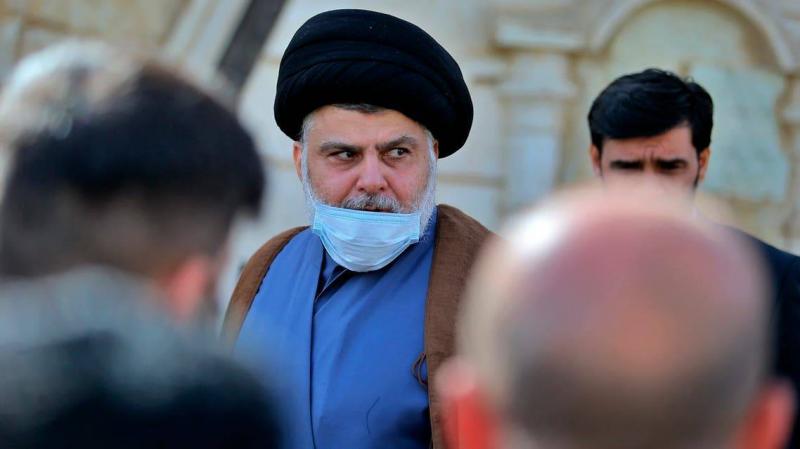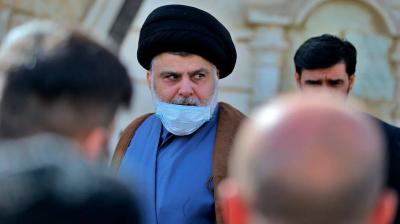After the Iraqi Parliament Speaker Muhammad al-Halbousi’s office announced on Monday the conclusion of a meeting held with the President of the Kurdistan Region, Masoud Barzani, and the leader of the Sadrist Movement, Muqtada al-Sadr, in Najaf to discuss the formation of the new government, Sadr reiterated his commitment to a majority government. In a tweet, Sadr called for an end to violence and terrorism against the people and partners, referring to a recent attempt to target the home of al-Halbousi, his most important ally, with three Katyusha rockets last week.
While emphasizing his insistence on forming a national majority government, Sadr welcomed dialogue with the national opposition.
Al-Halbousi also regarded that the era of foreign interventions in the formation of Iraqi governments has ended. He added via Twitter that today’s meeting was to discuss establishing a purely national Iraqi government, neither eastern nor western, as he expressed.
It is noteworthy that, with the ongoing obstacles to consensus among the parliamentary blocs that won in the elections to form the largest bloc responsible for forming the upcoming government in the country, particularly amidst the rejection by Sadr (the latest election winner) to include certain parties within the coordinating framework in what he describes as the "national majority government," former Kurdistan President Masoud Barzani has intervened.
The leader of the Kurdistan Democratic Party announced earlier on Monday that he proposed a political initiative to bridge viewpoints and create a suitable and good environment for the political process in the country. He also clarified that he suggested a visit by the President of the Kurdistan Region, Nechirvan Barzani, and al-Halbousi, to Sadr for consultations on how to continue the political process and remove obstacles and problems.
The three-party meeting in Najaf took place a week ahead of the anticipated parliamentary session on February 7 to elect a president for the republic, amid a division between the two largest Kurdish parties (the Patriotic Union of Kurdistan and the Kurdistan Democratic Party) over the nomination for this position. While the Kurdistan Democratic Party, which is conceptually allied with Sadr, is nominating Hoshyar Zebari, the Patriotic Union is insisting on renewing the current president Barham Salih.
Since 2003, the prevailing norm in Iraq designates a Kurdish president, a Sunni speaker of Parliament, and a Shiite prime minister, distributing the three highest state positions along sectarian lines. Large Kurdish parties in the country often align with other parliamentary blocs to elevate their candidate. However, the disagreements in the Iraqi landscape are not limited to the election of the president; perhaps the most significant and challenging issue lies in forming the new government, which Sadr insists should consist of a "majority" (i.e., the largest bloc), excluding the inclusion of Nouri al-Maliki’s party and others within the coordinating framework (loyal to Iran).




